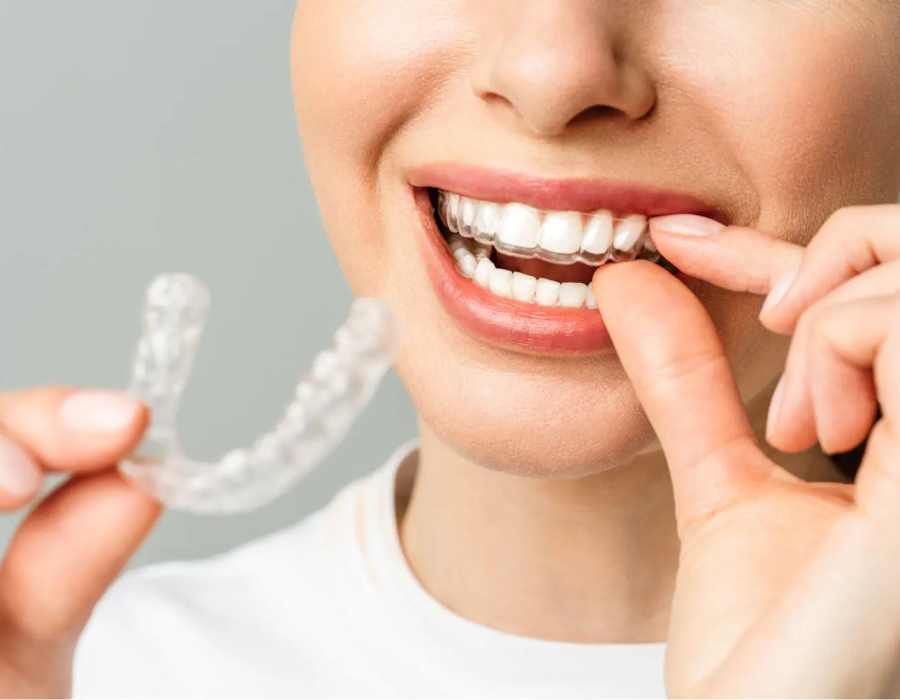A mouthguard is a protective device that covers your teeth and gums to prevent injury. Whether you play contact sports or suffer from teeth grinding at night, a Mouthguards can make a crucial difference in maintaining your dental health. These devices act as a cushion, reducing the risk of broken teeth, jaw injuries, and even soft tissue damage inside the mouth. Let’s explore why mouthguards are essential and how they can benefit different users.
Types of Mouthguards You Should Know:
Mouthguards come in various forms, each designed to suit specific needs. Understanding the types available helps you make the right choice:
- Stock Mouthguards: Pre-formed and ready to wear, these are inexpensive but offer the least protection and fit.
- Boil-and-Bite Mouthguards: Made from thermoplastic, these are softened in hot water and molded to your teeth, offering a better fit.
- Custom-Fit Mouthguards: Designed by a dentist, these provide the highest level of comfort and protection but are also the most costly.
- Nightguards: Specifically designed for those who grind their teeth (bruxism) or suffer from jaw clenching during sleep.
Each type serves a unique purpose, and choosing the right one depends on your activity level, budget, and comfort preferences.
Who Needs a Mouthguard?
Mouthguards aren't just for athletes. A wide range of people can benefit from them in various situations:
- Athletes in sports like football, hockey, boxing, or basketball
- Teeth grinders or those diagnosed with bruxism
- People with TMJ disorders experiencing jaw pain or clicking
- Kids and teens active in school sports programs
- Adults using braces or dental appliances that need extra protection
If you're involved in any activity that could result in facial impact or if you clench your jaw during sleep, a mouthguard could prevent long-term damage and costly dental procedures.
Key Benefits of Using a Mouthguard:
Wearing a mouthguard regularly offers numerous advantages beyond just tooth protection:
- Prevents chipped or broken teeth
- Reduces the risk of jaw injuries
- Protects lips, tongue, and soft tissues
- Minimizes the impact of teeth grinding
- Improves sleep for bruxism sufferers
- Reduces the severity of concussions in some cases
In addition to these health benefits, mouthguards also provide peace of mind, allowing you to focus on your game or sleep without worrying about dental damage.
How to Care for Your Mouthguard Properly?
Proper maintenance is key to ensuring your mouthguard remains effective and hygienic over time:
- Rinse the mouthguard with cold water before and after each use
- Clean it with a toothbrush and mild soap or a non-alcohol mouthwash
- Store it in a well-ventilated case when not in use
- Avoid hot water, which can deform boil-and-bite and custom guards
- Check regularly for signs of wear or damage and replace as needed
Neglecting care can lead to bacterial buildup and reduce the lifespan of your device. A clean and well-maintained mouthguard will always offer better performance and comfort.
When to Consult a Dentist About Mouthguards?
If you’re unsure whether you need a Best Mouthguards Treatment or which type is right for you, a visit to the dentist can provide clarity. Your dentist can:
- Assess your risk factors (such as grinding, TMJ, or sports activities)
- Recommend the best mouthguard type for your needs
- Take dental impressions for a perfect custom fit
- Provide tips on usage and care for longevity and hygiene
Especially if you’re experiencing headaches, jaw pain, or worn-down teeth, professional advice ensures you’re taking the right steps to protect your oral health.





Comments